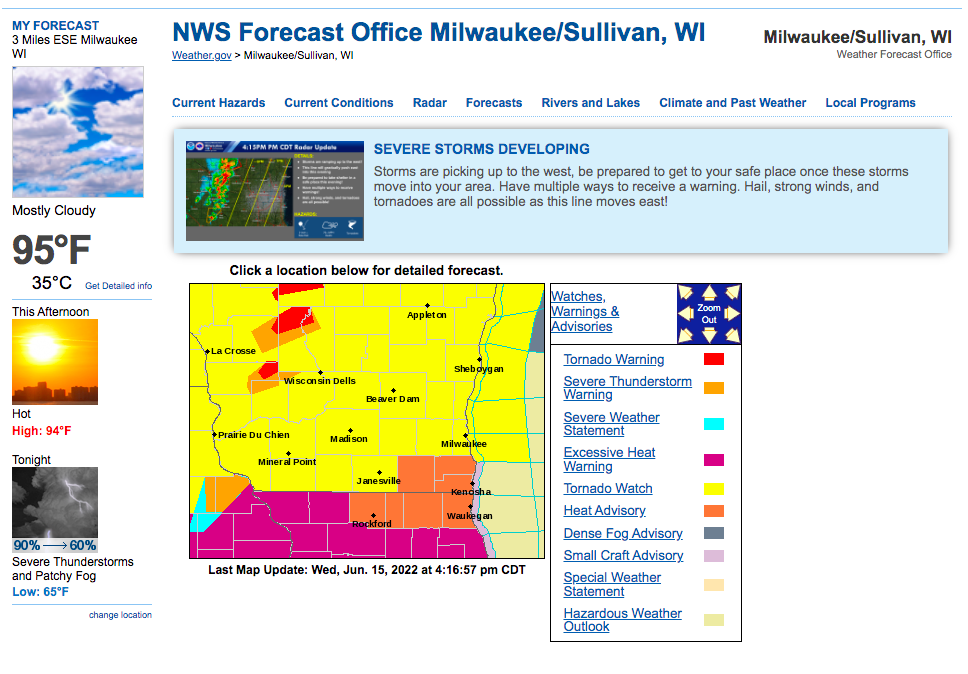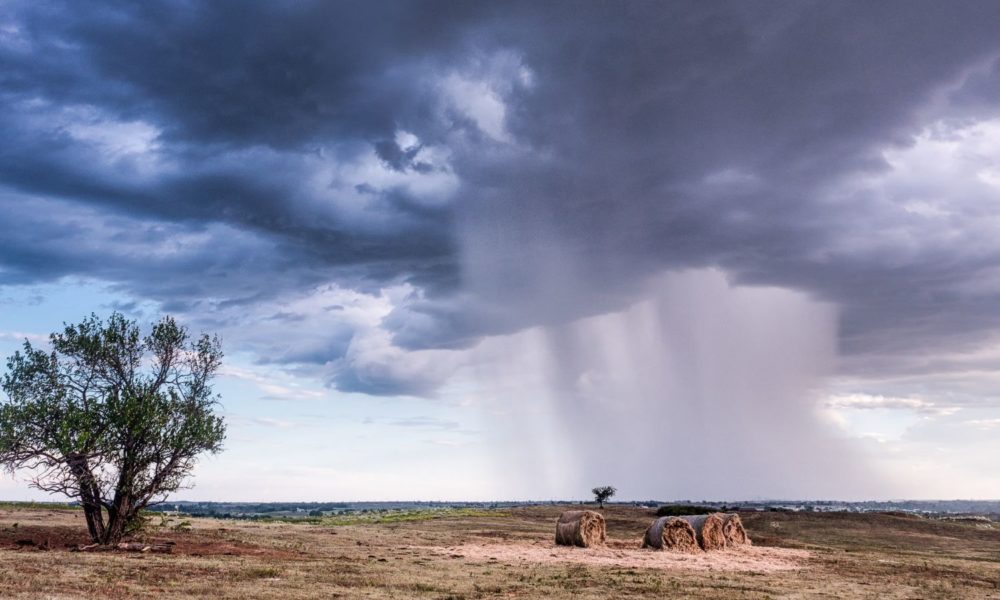If there’s one region of the country that has been Exhibit A this year for summer-turned-Danger Season, it’s the Midwest. The warm season began with an incredibly unseasonable heatwave, smashing records left and right. And now, the Midwest is currently playing whack-a-mole with weather and climate hazards.
Here in Madison, Wisconsin, we’ve been under an intense heatwave that rolled into the area on Monday, announcing its arrival with severe thunderstorms that downed power lines across the area. Thousands of people, myself included, found themselves without power and air conditioning as temperatures climbed into the upper-nineties.

My local National Weather Service Weather Forecast Office’s map as of 4:30 PM Central on 6/15/2022. There were TEN different types of watches/warnings/& advisories active.
Madison is not alone, with hundreds of thousands of Midwestern residents losing power just as the heatwave descended upon the region. The Midwest was warned about an increasing potential for rotating power outages during heatwaves this summer, but not because of storm damage. Rather, because of potential capacity issues due to an aging power grid in need of transmission upgrades and barriers to adding more clean energy resources like wind and solar.
The storm brought huge amounts of rain with it, and tragedy in Milwaukee when a young boy slipped into a drainage ditch, with two men following after in an attempt to rescue him.
As I write this, nearly 1,000 Madison residents are still without power. And now, adding insult to injury, there is an active tornado watch for the region. I can see the winds kicking up as I look out the window and I’m running through the scenario of what we’ll do if the sirens go off. Here’s hoping that won’t come to fruition. (Update, the tornado watch turned into a tornado warning, requiring my family to shelter in our basement—but luckily, none touched down in Madison. Sadly, one did touch down 100 miles northwest of here, damaging several homes.)
Given that extreme heat is projected to become a bigger threat to the Midwest, all of this has been an example of why we need to be taking climate change seriously. I, for one, want summer to remain the fun season, but that’s going to require a concerted effort from here on out.
Luckily, there are things that we can do. We can invest now in a climate-resilient future. You can urge Congress to pass the National Climate Adaptation and Resilience Strategy (NCARS) Act so that we have a plan for how to manage all of these compounding hazards. We don’t need to be caught off guard. Let’s keep summer fun instead.

